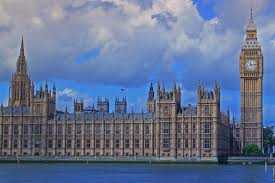
The Chancellor Jeremy Hunt has today delivered his much anticipated Autumn Statement speech to a packed out House of Commons, stating that in the face of “unprecedented global headwinds”, he fully recognised that families, pensioners, businesses, teachers, nurses and many others, were quite understandably worried about what the future holds for them.
He said that he planned to tackle the cost of living crisis and rebuild the UK economy in a balanced way, by concentrating on three main priorities; those being: stability, growth, and public services, whilst striving to protect the vulnerable. He stated that “to be British is to be compassionate and this is a compassionate government”, which received the expected jeers from those sat directly across from him.
There were also howls of derision when he said he “understood” his predecessor’s motivations in the mini-budget, which many blame for the current plight. He declared officially that the country is in a recession and bluntly confirmed what most people knew anyway, that it will get worse before it starts to get better. He pointed out that the UK are not alone in facing the problems, largely brought about by Putin’s war in Ukraine, which had made fuel prices as much as eight times the historic average. However, he announced, the response to global problems will be with… “British solutions”; something that drew more ridicule from the opposition.
He was determined he said, to not leave the massive debt, which he put at around £55billion, to the next generation, but was committed to protecting pensions. He also said that the Bank of England had his full support and they would work, in his words, “in lockstep” moving forward.
Former Prime Minister’s Boris Johnson and Theresa May were present throughout, but a noticeable absentee was previous PM, Liz Truss; possibly not wanting to inflame proceedings.
Stability has been badly effected by the Coronavirus
Going into detail on his declared three main priorities, he began with stability, for which he said “high inflation is the enemy” as it leads to higher prices, higher mortgage rates, and businesses failings, which in turn causes industrial unrest and erodes savings. He then made a strong reference to the effects of Covid when he said that most countries in the world were dealing with the “fallout from a once-in-a-century pandemic.” He pointed out that the furlough scheme, the vaccine roll out, and the remarkable response of the NHS “did our country proud”. Nevertheless, he continued: “they all have to be paid for.”
Energy independence part of the way to growth towards next “silicon valley”
With growth, Mr Hunt insisted that it is not possible to “borrow your way to growth” and the plan was to build a high-wage, high-skill economy that can lead to long term prosperity. He said that there is a need to change the approach to energy, to stop the country from being at the mercy of international gas prices, and energy independence combined with energy efficiency, would mean that the UK would never again be in a position where Putin, or anyone else, could try the blackmail route.
He then went on to clarify the position on the proposed rail projects, which will go ahead as planned, and reiterated that there will be more than £600billion of investment over the next five years to connect the nation and in doing so, grow the economy. That he said would include the new hospitals programme, together with a gigabit broadband rollout. He spoke of the UK being a “science superpower” and stated that he wanted to use that technical brilliance and “genius for innovation” to turn Britain into “the next Silicon Valley.”
NHS to get full support
Mr Hunt admitted there would be a squeeze on public services, but committed to protecting the health budget as he said a strong NHS was at the heart of the Prime Minister’s vision for the country. To that end he announced that the NHS budget will be increased in each of the next two years by £3.3billion.
In education he said it was not just an economic mission, but also a moral mission to provide a good standard of learning across the country. He promised that in 2023 and 2024 the government will invest an extra £2.3billion in schools. The social care lifetime cap which was due to be introduced in October 2023, has however been delayed by two years.
Scheduled public spending will be maintained until 2025, but then grow more slowly than previously expected, as the UK’s inflation rate is predicted to be 9.1% this year and 7.4% next year, and the government will give itself five years to hit debt and spending targets, instead of the three years it currently stands at.
Tax thresholds take a hit
Tax was always going to be a contentious issue and his decision to lower the threshold for 45% income tax from £150,000 down to £125,140 will have rattled a few cages. Personal allowance and main national insurance and inheritance tax thresholds will be frozen for further two years, until April 2028.
There will be a huge increase in windfall taxes. The increase in the windfall tax to 35% will mean an overall increase in oil and gas companies’ tax from 65% to 75% on profits from UK operations. This will last until March 2028, extended from December 2025. Additionally, there will be a 40% tax on profits of older renewable and nuclear electricity generation. Together this will raise £14billion next year alone, which represents a massive increase.
Pensioners relieved
State pension payments, plus means-tested and disability benefits are to increase by 10.1%, in line with inflation, and the chancellor confirmed that the National Living Wage will be increased from £9.50 an hour for over-23s to £10.42 from April next year. Mr Hunt eased the anxiety of many pensioners by confirming that the government is sticking to its “triple lock” on the state pension, which refers to a manifesto pledge that the state pension would rise in line with whichever is the higher between inflation rate, average wage increase, or 2.5%.
Labour tear into statement
Shadow chancellor Rachel Reeves said that “all the country got today was an invoice for the economic carnage that this government has created.” She added that “never before have people paid so much in tax, and yet got so little in return”, stating that it was a crisis made in Downing Street and that the government were “pickpocketing” the public, leading to the only judgement possible that Britain can “no longer afford a Tory government.”
Shallower but longer recession seems to be the conclusion
The immediate conclusion to what Mr Hunt delivered is that it appears to be that the government’s forecasters: the Office for Budget Responsibility (OBR), believe that the country are facing a relatively shallow, but lengthy recession, which will obviously have major impact on households.
Living standards probably will not fully recover before the end of this Parliament and if the Bank of England’s separate forecasts are correct, then there is every possibility that unemployment could hit 6.5%, or in other words, a further one million people out of work.
Independent watchdog suggests some positivity
The OBR was created in 2010 to provide independent and authoritative analysis of the UK’s public finances. It is one of a growing number of official independent fiscal watchdogs around the world. The five main roles to monitor and advise on are: economic and fiscal forecasting; evaluating performance against targets; sustainability and balance sheet analysis; evaluation of fiscal risks; and scrutinising tax and welfare policy costing.
They seemingly are suggesting that the government’s recent actions are already benefiting the economy.












0 Comments